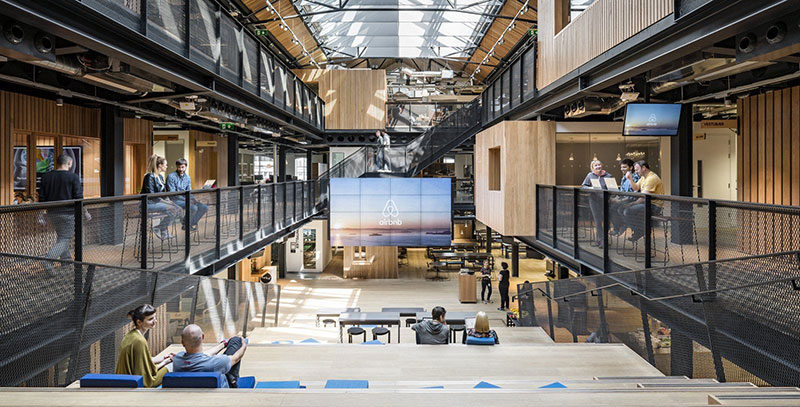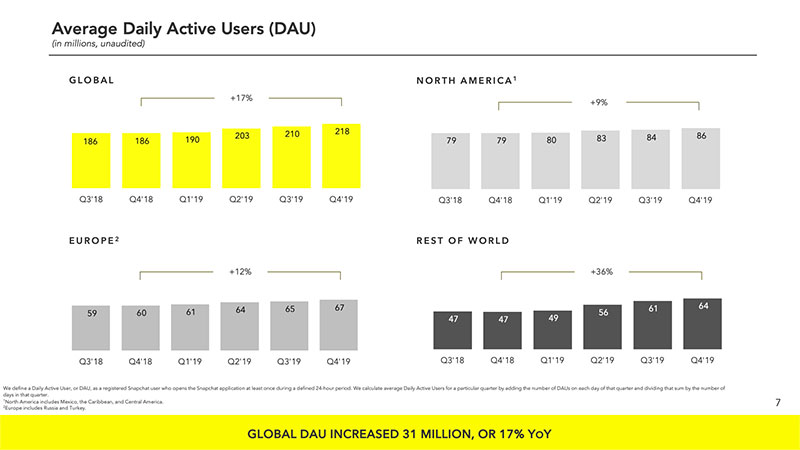Venturing into the entrepreneurial world often sparks a debate: startup or small business—which path steers fortune’s wheel?
You’ve heard success stories from Silicon Valley moguls who transformed a groundbreaking idea into disruptive technology.
Equally, the heartbeat of Main Street echoes through family-owned shops and local services defining the American dream.
Here, we wade into this complex arena, equipping you with clarity. Your compass for business strategy, funding insights, and operational know-how awaits.
We’ll explore essential contrasts, from the adrenaline-fueled scalability of startups to the community-rooted stability of small businesses.
What’s the call? Sprint for venture capital or weave into the fabric of local commerce?
By article’s end, the fog of choice will clear. You’ll emerge strategized, primed to carve a niche in a competitive market that awaits your unique value proposition.
From entity distinctions to financial landscapes, we unfurl the tapestry of entrepreneurship. Ready? Let’s begin this journey of discovery.
What is a Startup?

All of these definitions, whether related to tech startups, early-stage companies, or local businesses, are relatively fluid and can encompass a large range of different types of companies.
There are, however, definite aspects that determine whether or not a company is a startup or a more traditional small business, like a mom-and-pop shop.
Generally speaking, a startup, often driven by innovation and disruption, is a business that is right at the beginning of its life but is expecting a significant expansion or growth in the future. Startups tend to be big game-changers, aiming to pivot or scale rapidly in their market.
Startups, especially those with a Minimum Viable Product (MVP), tend to be founded with the intention to produce a single or limited amount of specific products or services.
They differ from small businesses, which might be more focused on brick and mortar retail, in this way, as often once they create this product, they consider their work done. Many startups, especially those with a unique competitive advantage, are often bought by larger corporations at this point.
They rely on funding from grants, venture capital, or angel investors, and investments from shareholders to develop their product or service.
This product or service is generally something that is exciting, potentially disruptive, and has high expectations placed upon it that it will be a hit and change whole industries.
Startups are about high stakes – risks are taken, but if they succeed, the results, like achieving unicorn status, will be amazing.
Entrepreneurs, often driven by entrepreneurship philosophies and business strategies, who begin a startup should not be afraid of taking risks.
There are no guarantees.
Many startups, built on the passionate development of an idea, are bootstrapped or rely on seed funding and have taken months or even years to evolve.
What is a Small Business?

One of the main ingredients that make small businesses, such as mom-and-pop shops or family-owned establishments, what they are, is that they focus on consistent, reliable returns as opposed to consistent growth like many tech startups.
This difference in goal, whether it’s serving the local economy or aiming for market disruption, is a vital distinction.
On top of that, a small business, often seen as a brick and mortar or a local business, is any company that has very few employees.
They operate on a different scale, perhaps more akin to Main Street than Silicon Valley, and focus on remaining sustainable in their business practices, ensuring longevity for the future.
Whereas a startup, potentially driven by a unique business model or aiming for a significant market share, may be aiming to be successful later on in the future, a small business is aiming to be a success from day one.
They look for modest success that can be maintained, rather than a large success that comes all at once and later on, like many unicorns in the startup world.
They often do not require outside investment in the same way that startups do, as one of their key aims is to raise their own revenue from the beginning, without heavily relying on venture capital or angel investors.
This self-sufficiency is a hallmark of many small business operations.
They tend to focus on a local, regional market, perhaps even being a staple of their community’s Chamber of Commerce, and look to develop their business in a small but reliable way.
Unlike startups, which might pivot or undergo rapid changes, there is often less major risk involved in the steady trajectory of a small business.
The Main Differences Between a Startup and a Small Business
Growth Intent
The U.S. Small Business Administration (SBA), a key resource for many mom-and-pop shops and local businesses, describes small businesses as “independently owned and operated, organized for profit, and not dominant in its field”, differentiating them from startups which might aim for a significant market share or disruption.
Primarily, startups, especially tech startups or those with a unique business model, want to disrupt their chosen market in a major way.
They often want to take over the market completely, aiming for a unicorn status or becoming a game-changer in their industry.
They often will not be profitable at first, or even for the first few years, as they might be in the early stages of developing their Minimum Viable Product (MVP) or undergoing growth hacking.
They rely on a powerful vision of a final goal. This vision, driven by innovation and the potential for scale, attracts investors, such as angel investors or venture capitalists, who are willing to stake their money on a big profit further on down the line.

This is in contrast to small businesses, such as mom-and-pop shops or family-owned establishments. Small businesses often start in response to some demand for either a product or service that is yet to be fulfilled in the local economy.
To summarize – mainly, it is the driving force or the underlying entrepreneurship philosophy behind the two types of businesses that creates the difference.
Startups, often driven by innovation and aiming for a significant market share, intend to disrupt the market with a powerful and singular business model, potentially aiming for unicorn status.
In contrast, the small business, deeply rooted in its community or Chamber of Commerce, wants to sustain its business over the long term and secure its own niche in the market.
Startups are Temporary
So what other big differences are there behind these two different styles of business model?
Put simply: one, like a local business, intends on lasting for a long time, serving Main Street for years, while the other, potentially a tech startup, does not.
Startups, especially those in their early stages or seeking seed funding, have a particular method behind their business framework – to find a business model that is repeatable and scalable. Blank states that because of this, startups, with their growth hacking approaches, have three main functions:
- To have a vision of the end product with a certain set of features
- To determine a set of hypotheses that will guide all aspects of the business model. For example, who are your customers? What distribution channels, perhaps pivoting from initial ideas, does your startup have? How will the startup, through angel investors or venture capital, be financed and built?
- To validate quickly and efficiently, through market research and customer feedback, whether or not the business model is correct by observing how customers react
Startup vs Small Business: Differences in Funding
A majority of small businesses, like mom-and-pop shops or family-owned establishments, tend to get by on hardly any funding, often relying on their local economy or brick and mortar presence.
They have a focus on profitability from day one built into their business plans, ensuring consistent, reliable returns.
This is the main difference that small businesses, with their Main Street focus, have with startups, which might be aiming for disruption or scale.
However, that does not mean that it is unnecessary for small businesses to obtain funding. They often require it to start out with, especially if they’re setting up a retail or physical presence.
The difference is the scale of funding that they look for. Common sources of funding for small businesses include private savings, banking credit, and investments made by friends and family.
If a company qualifies as a small business, there is also the option of applying for a small business loan through institutions like the Small Business Administration (SBA).
While startups, especially those in their early stages or with a unique business model, often seek funding during most of the course of their lifetimes, small businesses only tend to seek out funding at the beginning.
This is because small businesses, deeply rooted in their community or Chamber of Commerce, aim to be profitable as soon as possible, to maintain their business and serve their local or regional market.
Startups, on the other hand, often look for funding from places such as angel investors and venture capital firms, aiming to develop their Minimum Viable Product (MVP) or achieve significant market share.
To obtain this kind of funding, startups, especially those aiming for disruption or with a unique competitive advantage, often need to have a clear plan and show passion for their final goal.
As they are built around a single endpoint, often aiming for a significant market share or even unicorn status, this means that startups should have at least a rough idea of how much investment they will need overall.
Venture-backed companies, whether they’re in their early stages or undergoing growth hacking, often need to see a solid business model with clear plans on how profit will eventually be made and how they might pivot if needed.
Risk Factors
Startups, driven by innovation and potentially aiming to scale rapidly, tend to be begun due to the founder having a new idea and wishing to see it realized.
This often means creating a whole new niche for a product or service, or developing a Minimum Viable Product (MVP) that stands out.
Even if that is not the case, then the product or service will be designed to be revolutionary in some way.
This all means a huge amount of work, and also luck, will be required to make the idea work.
This introduces much more risk to the startup business model, with its growth hacking and potential pivots, than a more standard small business, which might focus on consistent, reliable returns.
Small businesses, like mom-and-pop shops or family-owned establishments serving their local economy, also take on risk, but it is of a different kind.
Small businesses tend to fit into already established niches – a coffee shop or a brick and mortar store, for example.
They are not looking to revolutionize the business or disrupt the market. The timescales of their success, deeply rooted in their community or Chamber of Commerce, are often longer than startups, as they are not entirely focused on growth as a priority but more on sustainability and serving their local or regional market.
Way of Life
The ways in which an entrepreneurs’ private life is combined with their work-life, whether driven by entrepreneurship philosophies or local business needs, varies between startups and business too.
For startups, especially those in their early stages or seeking venture capital, the pressure is on immediately due to the large amounts of funding put in by investors, such as angel investors or seed funding sources.
The pressure is there to make a profit as soon as possible, potentially aiming for a significant market share. Often, startups are born from passion and innovation.
This leads to entrepreneurs needing to spend as much time as possible to realize that dream goal, perhaps aiming to develop a Minimum Viable Product (MVP) or achieve unicorn status.
The competition of other startups, with their growth hacking strategies, to get to that revolutionary idea first is also a motivator. This can all mean a lot less private time for the startup owner!
For small businesses, like mom-and-pop shops or family-owned establishments, there are fewer risks and more structure.
The focus is on building a slow and steady stream of income, perhaps from a brick and mortar presence, to support the business in the long term and serve the local economy.
However, life as a business owner, deeply rooted in their community or Chamber of Commerce, means that work never really ends.
Especially at the beginning of a small business, the business owner can spend 24 hours a day maintaining and nurturing their business, ensuring consistent, reliable returns, before they even make a profit.
FAQ On Startup Vs Small Business
What defines a startup compared to a small business?
Startups are sworn to innovation and scalable business models, zealously chasing venture capital to disrupt market norms.
Small businesses? They’re the backbone, community-centric, profit-sustained, often family-run. Think Silicon Valley meets Main Street.
How do funding options differ for startups versus small businesses?
Startups shoot for the moon with angel investors and seed funding rounds—eyeing rapid growth and high returns.
Small businesses play it close to heart, often tapping into local bank loans, SBA loans, or personal savings, keeping things more predictable and steady.
Why is scalability important for startups?
It’s all about the growth hacking game here.
For startups, scalability isn’t a mere option; it’s the lifeline, dictating potential to skyrocket beyond the seed stage into the realms of the market giants—someday joining the unicorn club.
Can a small business ever become a startup?
Sure, if a small business pivots, adopts a scalable model, and finds itself on a path of rapid expansion and innovation.
It’s like a caterpillar transforming—same DNA, but a different game plan and possibly, wings to fly.
What is the role of innovation in startups?
In a startup, innovation isn’t just a buzzword, it’s the battle cry. It’s about crafting something fresh—disruptive technology, a groundbreaking approach.
They’re not just selling a product; they’re revolutionizing the industry playbook.
How do startups and small businesses handle risk?
Startups tend to tango with risk; they gambol on the edge, where high stakes could flip to high rewards. Small businesses—not so much.
They’re the steady hand, preferring a wiser pace, risk-averse, with a close eye on sustainability.
What’s the typical exit strategy for startups as opposed to small businesses?
Startups often eye the grand finale—acquisition by a giant, or maybe an IPO—cashing out big for investors.
Small business owners might look to pass the torch within the family, sell to a trusted employee, or simply retire with the shop’s sign still swinging.
How does customer acquisition differ between the two?
For startups, it’s about creating a vortex of attention, riding the viral wave. Small businesses take a more intimate route—community networking, local brand loyalty.
It’s the difference between wide-reaching digital campaigns and the handshake at the neighborhood meet-and-greet.
Are the growth expectations different for a startup versus a small business?
Absolutely. For startups, the trajectory’s steep—investors expect a rocket, not a kite. Growth’s measured in multiples.
Small businesses? Steady as she goes; growth’s a well-kept lawn, not a wild beanstalk reaching for the clouds.
How does the management structure typically differ between startups and small businesses?
Startups often boast a flat hierarchy—dynamic, fluid, everyone’s wearing hats of all shapes.
In small businesses, the structure’s more traditional, sometimes hierarchical—roles are clear, paths well-tread, making for a cozy predictability that can feel like home.
Conclusion
As the final curtain draws on our discourse of startup vs small business, a toast is due for the courage embedded in both journeys. Whether the trailblazer aiming to seize Silicon Valley’s golden fleece or the neighborhood hero weaving the fabric of local commerce—each path carves a distinct narrative in the entrepreneurial saga.
With a palette comprising venture capital, family-owned shops, and the whispers of scalability and sustainability, the picture we’ve laid out here isn’t just vibrant—it throbs with life. It’s more than choosing a route; it’s about understanding the nuances of your mission, your dreams.
And so, armed with insights to navigate this landscape—from angel investors to the SBA, from disruptive innovation to Main Street’s embrace—you stand at the helm. Yours is the power to chart the course ahead. Here’s to your story, your enterprise. May it soar in the boundless skies of ambition or grove deeply in the rich soil of community.
If you liked this article about the difference between a startup and a small business, you should check out the best business YouTube channels, this article on startup culture, and the positions in a startup company.
We also wrote about similar topics like startup quotes, how it is working at a startup, and startup ideas for students.





